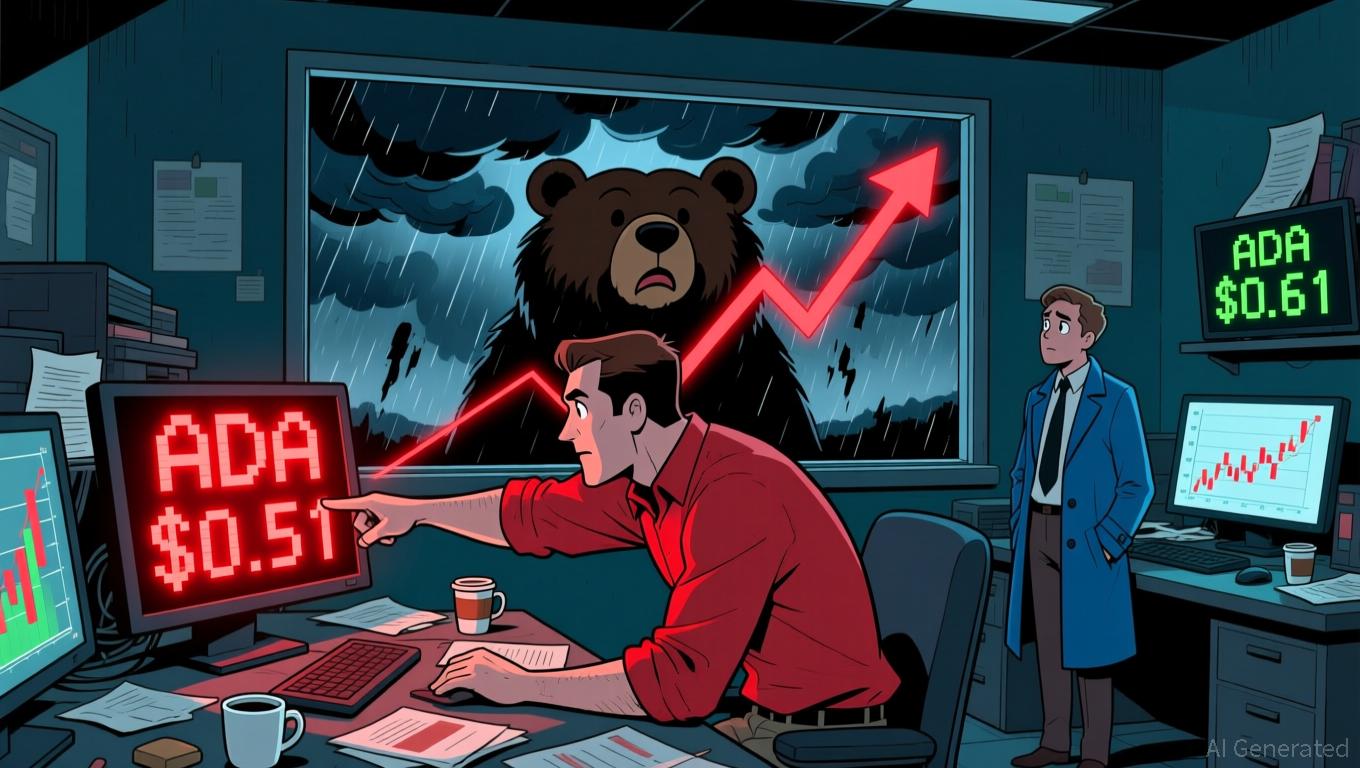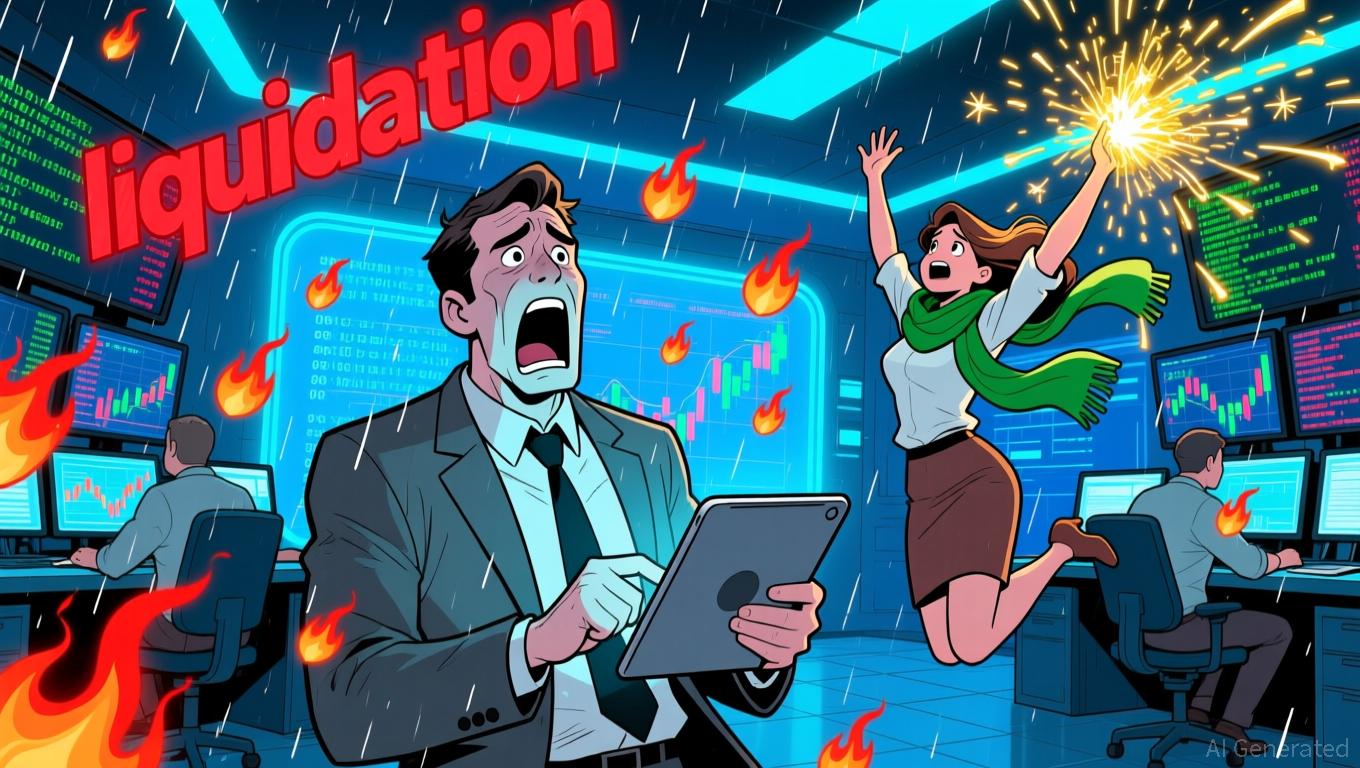Corporate Sector Relies on Cash Reserves and Strategic Discipline to Steer Through an Unpredictable Financial Environment
- U.S. corporations are leveraging improved liquidity and disciplined strategies to boost growth, with energy, logistics, and tech firms reporting strong earnings and strategic investments. - Natural Gas Services Group raised 2025 EBITDA guidance to $78–$81M due to record fleet growth and Devon Energy collaboration, while Proficient Auto Logistics saw 24.9% Q3 revenue growth from operational efficiency. - Technology firms like TASE and Amdocs demonstrated resilience through 35% revenue growth and dividend
Shifts in the U.S. financial environment have sparked fresh optimism among business executives, as numerous companies report strong profits and make strategic decisions that reflect faith in ongoing expansion. Although the possibility of a government restart remains under discussion, businesses in sectors such as energy, logistics, and technology are taking advantage of better liquidity, unprecedented revenue levels, and prudent capital management.
Natural Gas Services Group (NGS) is a prime example of this momentum,

In the logistics field,
Firms in technology and infrastructure are also making the most of favorable market conditions. TASE, which operates Israel’s stock exchange,
The wider market is also experiencing increased capital inflows and new alliances. Team, Inc.
Nonetheless, some obstacles remain. The bankruptcy of First Brands Group highlights the dangers linked to off-balance-sheet borrowing and governance lapses,
Even with these challenges, the evidence points to a robust corporate environment. With companies such as NGS, Proficient Auto, and Amdocs showcasing disciplined expansion strategies, the market seems ready to benefit from ongoing liquidity support. As uncertainty lingers over the U.S. government's fiscal direction, business leaders are prioritizing operational excellence, market growth, and shareholder value to steer through the changing landscape.
---
Disclaimer: The content of this article solely reflects the author's opinion and does not represent the platform in any capacity. This article is not intended to serve as a reference for making investment decisions.
You may also like
Investors Embrace AI and Tokenization Amid Decline in Conventional Markets
- Crypto market declines reflect investor shift to AI-driven platforms and tokenized assets amid traditional market volatility. - Recent token listings show diminishing returns (e.g., SEI/2Z 8-5% drops), signaling skepticism toward conventional mechanisms. - AI optimizes private market operations (e.g., SaaS growth, HELOC underwriting) while democratizing capital access beyond institutional bias. - Tokenization unlocks liquidity in art and healthcare via AI-driven insights, challenging traditional VC model

Cardano News Update: Institutions Embrace Cardano While DeFi Advances—Cardano and Mutuum Finance Set the Stage for 2025 Crypto Evolution
- Cardano (ADA) and Mutuum Finance (MUTM) lead 2025 crypto divergence through institutional adoption and DeFi innovation. - Cardano partners with EMURGO/Wirex to launch ADA-spending "Cardano Card," targeting 6M users and ISO 20022 alignment for institutional credibility. - Mutuum Finance raises $18.8M in presale, plans Q4 2025 testnet with liquidity pools and mtTokens, offering 250% returns for early buyers. - ADA faces bearish technical patterns and whale selling, while MUTM's low entry price and structur

XRP News Today: Crypto Market Turbulence Rises as SEC Alters Regulations and Major Whale Closes Short Position
- A "Triple Short ASTER" whale liquidated a 4.79M AST short position, triggering crypto market volatility and $10M+ in ETH/XRP losses. - XRP dropped to $2.40 amid Canary Capital's ETF launch, while ETH longs face losses from SEC's accelerated crypto ETF approval process. - SEC's 20-day ETF filing rule and 21Shares' crypto index ETFs (TTOP/TXBC) highlight growing institutional exposure and regulatory uncertainty. - Market analysts link whale activity to broader trends in derivatives trading, ETF adoption, a

China’s economic framework faces challenges from both international trade tensions and internal pressures
- China's economy faces stalling risks as trade tensions, supply chain disruptions, and domestic challenges converge, with record investment declines undermining growth. - Trump's 100% tariffs on Chinese imports and export controls, alongside Beijing's retaliatory measures, create volatility despite temporary trade truce efforts. - Sector-specific risks persist: antimony export bans are suspended, but rare earths and semiconductor disputes remain unresolved, while real estate-linked industries like Lingong
